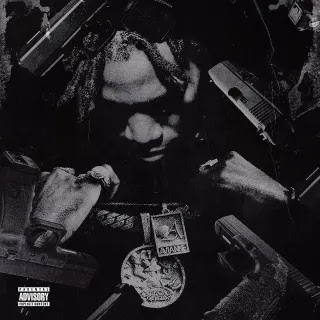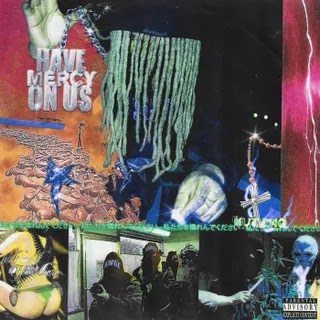The anonymous Brooklyn rapper’s third album is a little bolder and a little rawer, but it’s her versatility—across hip-hop, ballroom, house, and R&B—that keeps her sound fresh.
Leikeli47 may wear a mask, but she has a stronger sense of identity than many rappers who plaster their faces wherever they can find space. She’s a child of hip-hop and ballroom culture whose reference pool includes rap icons like JAY-Z and Lauryn Hill, and fashion icons like America’s Next Top Model coach J. Alexander; she lets her music speak for itself, but infuses it with just enough biographical detail to stand out. As a Black woman living in Brooklyn, Leikeli’s brand of anonymity grants her music a personal and communal confidence that extends across her three studio albums, all named after Black beauty treatments: 2017’s Wash & Set, 2018’s Acrylic, and her latest project, Shape Up.
Structurally, Shape Up isn’t far removed from the rhythm of Acrylic. Both albums revolve around pulsing beats that owe as much to ballroom and techno as they do hip-hop, and both eventually pivot to sultry ballads and love songs. The key difference between the two is the lack of a narrative throughline—unlike Acrylic, Shape Up has no skits or world-building exercises. Like any good sequel, the new album amplifies what worked before, streamlining an established formula without tampering too much. Leikeli’s braggadocio is slightly bolder, the intimacy of her stories slightly deeper. She opens the second verse of “Secret Service” with a raucous scene of her and some friends bumping JAY-Z songs while driving a van along the Potomac River, and you can feel the subwoofer rattling the chassis. Moments like these mark Shape Up as another peek behind her personal curtain, but it’s also a fiercely entertaining rap album in its own right.
Leikeli’s versatility goes a long way toward keeping her sound fresh. In her default mode, she mixes plucky punchline raps and gimme-what’s-mine boasts told with painterly detail. On “New Money,” she leads with a brutal shot at an ex (“My ex called me trying to talk again/But I don’t negotiate with terrorists”) and describes the Nike socks scrunched up in her Jimmy Choos before ending with a sweetly sung coda that recalls the opening melody of Beyoncé’s “Formation”: “I want every single quarter, penny, nickel, and dime/You ain’t gotta mail my check nigga; I’m outside.” “New Money” collapses all of her talents to dizzying effect, but they’re equally interesting when they manifest independently in the flows of the punchy autobiography that morphs into an action-packed stomp-out on “Zoom”; in details like the “assalaamu alaykom” that precedes a whirlwind romance with a partner on “LL Cool J” (short for “Ladies Love Cool Jewelry”); in the zig-zagging delivery of the ballroom scene she conjures on “Jay Walk.” Leikeli’s words are transportive, her sense of place amplifying the hectic production.
The scene-setting is just as captivating when she transitions away from pure rapping. Leikeli loves a jarring mid-album switch, almost as if she’s flicking your ear to ensure you’re paying attention. On Shape Up that’s a three-song stretch where she tells a failed love story over Temptations-style doo-wop (“Free to Love”), preaches pro-Black affirmations over a strobing house beat (“BITM”), and delivers a simmering R&B bedroom slow jam (“Baseball”). It’s a rollercoaster of tempo and mood changes, one that highlights the emotional and musical complexity of Black womanhood in blunter terms compared to the conceptual framework of Wash & Set and Acrylic. The candid romantic frustration and eventual clarity of “Free to Love,” in particular, give its story an equally personal and universal appeal.
Concept or no concept, Leikeli47 takes pride in using familiar elements of hip-hop, house, and R&B to continually remix her story. Her songs fuse stark confidence and raw vulnerability, unconcerned with how they scrape up against each other. Leikeli hasn’t strayed far from her musical comfort zone over the last five years, and Shape Up doesn’t attempt to fix what isn’t broken. But the control she exerts over her story ensures that every new album feels like an introduction.
















0 comments:
Post a Comment